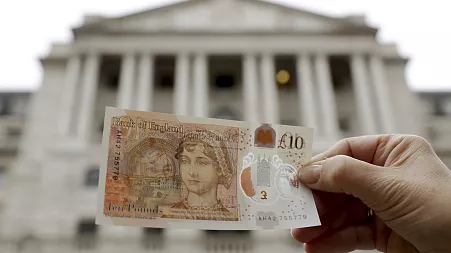The appearance of finer weather helped the economy recover some lost ground in May, according to official figures that were better than expected.
The Office for National Statistics (ONS) recorded gross domestic product growth of 0.4% in the month following zero growth during April.
A poll of economists by Reuters had pointed to a 0.2% increase for monthly gross domestic product in May.
In April, conditions more akin to a monsoon than April showers dented consumer sentiment and hurt construction.
ONS director of economic statistics, Liz McKeown, said: "The economy grew strongly in May with all the main sectors seeing increases.
"Many retailers and wholesalers had a good month, with both bouncing back from a weak April.
"Construction grew at its fastest rate in almost a year after recent weakness, with house building and infrastructure projects boosting the industry. Meanwhile, manufacturing also grew a little, led by food and drink firms.
"Across the last three months as a whole, the economy grew at its quickest pace for over two years with strong growth across services, partially offset by the weaker longer-term performance from construction."
Chancellor of the Exchequer, Rachel Reeves, welcomed the figure.
She said: "Delivering economic growth is our national mission, and we don't have a minute to waste. That is why this week I have already taken the urgent action necessary to fix the foundations of our economy to rebuild Britain and make every part of Britain better off. A decade of national renewal has begun, and we are just getting started."
On a quarterly basis, the UK's interest rate-driven recession of the second half of 2023 ended at the start of this year as the Bank of England ended its rate hiking cycle which was designed to cool inflation by choking demand in the economy.
Eagerly anticipated interest rate cuts have, however, proved elusive during 2024 due to stubborn elements including the pace of price rises for services and high wage growth.
The new Labour government has prioritised securing economic growth, with measures to date including the creation of a national wealth fund.
Lower borrowing costs, which financial markets think remain possible through a rate cut following the Bank's next meeting on 1 August, would aid that effort.
That prospect was not aided this week when a member of the Bank's rate-setting committee said he would not be in favour of a reduction from 5.25% to 5%.
This breaking news story is being updated and more details will be published shortly.
Please refresh the page for the fullest version.
You can receive Breaking News alerts on a smartphone or tablet via the Sky News App. You can also follow @SkyNews on X or subscribe to our YouTube channel to keep up with the latest news.
Disclaimer: The copyright of this article belongs to the original author. Reposting this article is solely for the purpose of information dissemination and does not constitute any investment advice. If there is any infringement, please contact us immediately. We will make corrections or deletions as necessary. Thank you.



